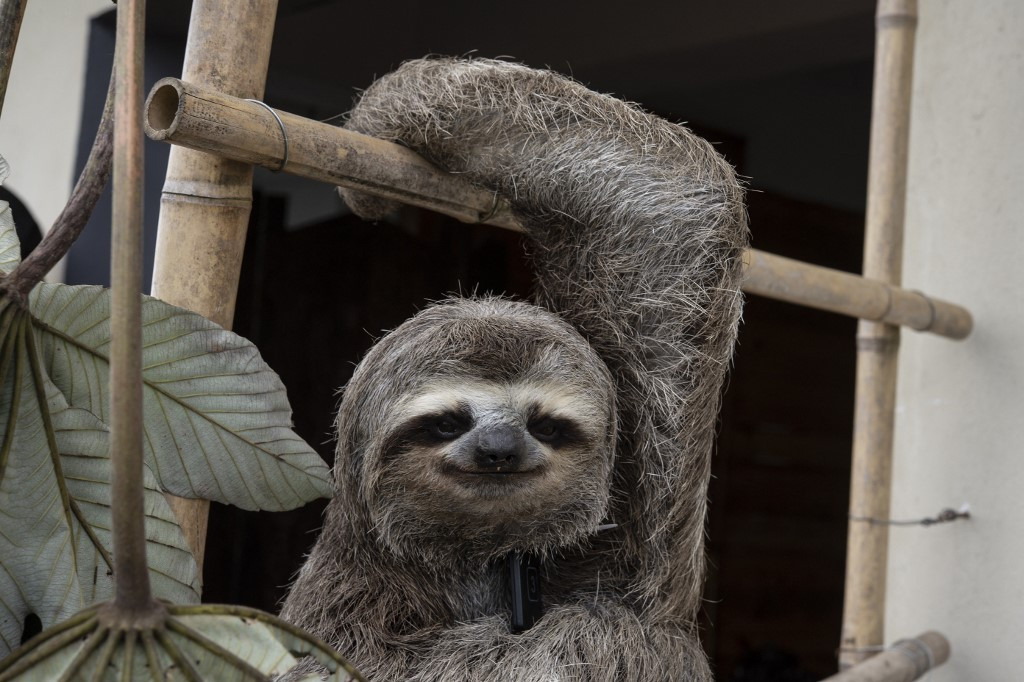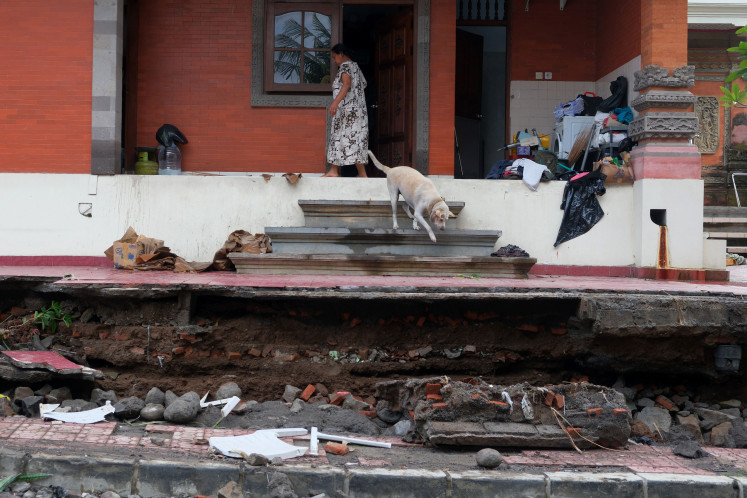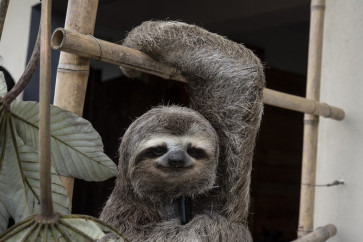Popular Reads
Top Results
Can't find what you're looking for?
View all search resultsPopular Reads
Top Results
Can't find what you're looking for?
View all search resultsVenezuelan couple goes all out for smiling but endangered sloths
Chuwie was the first sloth they rescued, and his face provides the logo of the foundation, located in San Antonio de los Altos, a suburb of Venezuela's capital.
Change text size
Gift Premium Articles
to Anyone
 A sloth (Bradypus tridactylus) called 'Chuwie', who lost the claws of three of his four legs when he was electrocuted on power lines and rescued after suffering serious burns, remains hanging while being feed at Chuwie's Sloth Rescue Center in San Antonio de Los Altos, Miranda state, Venezuela on September 23, 2021. (AFP/Yuri Cortez)
A sloth (Bradypus tridactylus) called 'Chuwie', who lost the claws of three of his four legs when he was electrocuted on power lines and rescued after suffering serious burns, remains hanging while being feed at Chuwie's Sloth Rescue Center in San Antonio de Los Altos, Miranda state, Venezuela on September 23, 2021. (AFP/Yuri Cortez)
Haydee Rodriguez has just set free a sloth named Maruja 58 in a forested area outside Caracas and is watching her get settled.
"Look how pretty! It's dancing in the trees," said Rodriguez, who along with her husband Juan Carlos shares a passion for the lethargic mammals that spend a lot of time hanging upside down from treetops.
Maruja 58 is the 58th sloth the couple has rescued, cared for and freed through the Chuwie Foundation, the organization they founded that works to help these animals native to the rainforests of Central and South America.
Chuwie was the first sloth they rescued, and his face provides the logo of the foundation, located in San Antonio de los Altos, a suburb of Venezuela's capital.
"We also want to help with research. To know how many sloths there are, for instance, and how they live," said Juan Carlos Rodriguez.
There are no official figures for the sloth population in Venezuela, but deforestation in Latin America has reduced the size of the animals' habitat, says the World Wildlife Fund (WWF).
The International Union for Conservation of Nature says the pygmy three-toed sloth is in danger of extinction, and another species -- the maned three-toed sloth -- is considered "vulnerable."


















